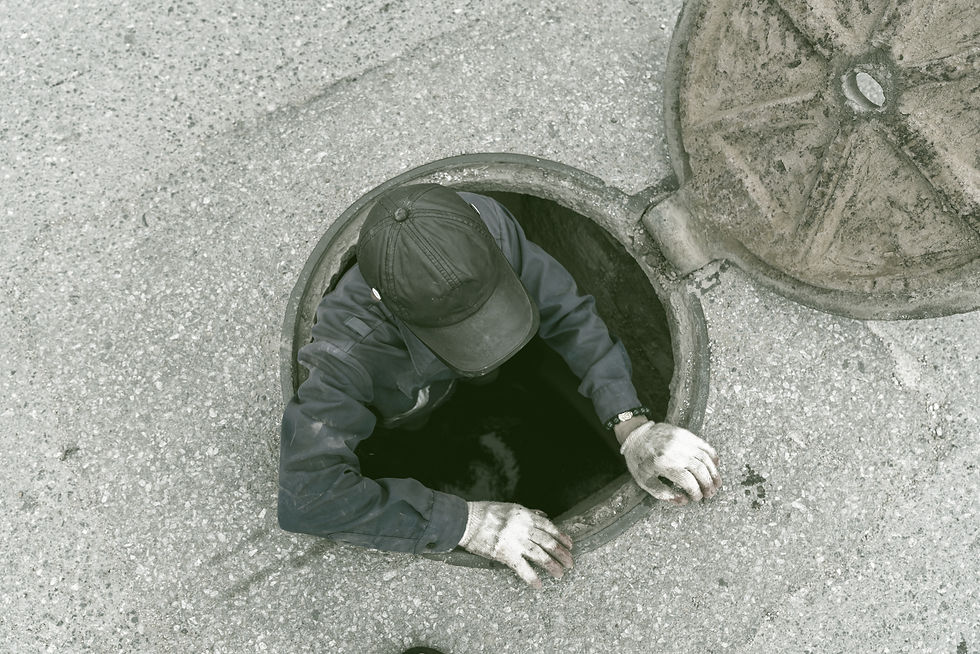Jackson's water crisis was years in the making. New solutions can make sure it won't happen again
- Jon Shieber
- Sep 12, 2022
- 6 min read

“Do not drink the water,” Mississippi Governor Tate Reeves said in an emergency briefing last week. “Be smart, protect yourself, protect your family, preserve water, look out for your fellow man and look out for your neighbors.”
On Tuesday, August 30, Reeves declared a state of emergency in Jackson. 180,000 people are facing low or no water pressure, and water is currently unsafe for drinking. Heavy rains cut off the Mississippi capital’s access to safe water and flooded the Pearl River that runs through the city.
Yet, the flooding only exacerbated a deteriorating water system and longstanding problems in one of two water-treatment plants. The plant — which is the larger of the two— was strained from the last flooding event.
These are problems that local advocates say are rooted in a history of racism and neglect. Nearly a week later and much of the city is only just now getting enough water to flush toilets, fight fires, after nearly running out of bottled water for residents according to CNN.
For years, the majority-Black city of Jackson has been dealing with substandard water conditions. In 2021 Jackson was put under recurring boil-water advisories due to concerns the EPA found in 2020 over contaminants like lead and E. Coli bacteria. The contaminants were a result of failure to upgrade water infrastructure, which Grist reports the agency has been working with the city and state to fix.
In October of that year, lawyers who represented residents in Flint represented children in Jackson, suing the city over failure and mismanagement that led to “hundreds, if not thousands” of children poisoned by lead.
A boil-water notice has remained in effect since July because the Health Department found cloudy water that could cause digestive problems, AP reports. These kinds of notices are common in Jackson, as several have been issued in the last few years.
So add Jackson to a list of places currently dealing with devastating climate-change-driven floods. As summer ends, powerful storms have deluged areas across the South, inundating Appalachia and Yellowstone, St. Louis, and nearby parts of Virginia, Death Valley, and Dallas. Climate-driven flooding is happening internationally as well, exhibited by “apocalyptic” flooding in Pakistan.
Flood risks are getting worse, and for Jackson, replacing that aging infrastructure with something more than a stopgap is a necessity.
With the water emergency receding, attention will turn to how to build back better.
"It was a near certainty that Jackson would begin to fail to produce running water sometime in the next several weeks or months if something didn't materially improve," Reeves told reporters last week.

Problems like this come from decades of under-investment in Jackson’s water system. Made up of roughly 1,500 miles of water mains, some are over a century old.
The old infrastructure was designed to support a much larger population. However, after the Civil Rights Movement and subsequent integration in the 1960s, white people, notably the wealthy, fled the city in floods.
The trend of white flight didn’t stop.
At least 20,000 white people left the city between 2000 and 2010, going from half of the city’s population to roughly a quarter, according to Jackson Free Press.
A substantial amount of tax revenue and institutional support needed to sustain water infrastructure left with them.
Today the city is about 83 percent Black. This is up from 47 percent in 1980. Still, Jackson has a 20 percent smaller tax base since that year. Jacksonian’s story of environmental racism is not unique. White disinvestment has led to similar water crises in Flint, Detroit, and several other cities across the nation.
Moreover, the state’s Republican legislature has failed to provide the majority-Democrat city with adequate funding for repairs.
Ongoing tensions between city and state governments have made crucial infrastructure upgrades more challenging. Spreading the cost of repairs across the state would help with the costs, yet as reported by Anna Wolfe at Mississippi Today, “many white people in the suburbs aren’t compelled to help and many Jackson residents fear ceding control of such a vital service.”
Last year, at least two bills aimed at helping raise money for water-system repairs died in the legislature. And in June 2020, Reeves, a Republican, vetoed bipartisan legislation designed to help residents with overdue water bills which, in turn, would have enabled the city to collect sorely needed water revenue.
“It’s twofold,” Wolfe wrote. “Systemic racism is an unmistakable underlying cause for Jackson’s stripped resources, and while it may be clouded by a mutual distrust today, racism continues to prevent future investment.”
After the emergency, there was a race to repair the water treatment plants and install a rented emergency pump. Governor Reeves’s emergency declaration activated the National Guard, and with President Biden approving, federal money will be funneled to Mississippi.
However, without long-term fixes and sustained investments, another crisis may unfold in a matter of months Vox reports. These fixes will require at minimum $1 billion, and billions more to sustain, Mayor Lumumba said.
Federal funding could help the situation — President Biden’s 2021 infrastructure bill will provide the state with $75 million for water and sewage needs, some of which will likely pour into Jackson.
Climate change makes floods in communities of color more common, so true change will involve using those federal dollars to address deep-seated inequalities that have drained the city of essential resources.

In Jackson, twinned problems of an aging infrastructure and climate-related flooding combined to knock out the city's water system.
As the city looks to upgrade, it could look to new technologies that exist to better understand where to put new water treatment facilities, what equipment is most in need of repairs, and new resources to help with treatment -- all while addressing a thinning workforce with little replacement options.
That's where a company like Atlanta-based 4Earth believes it can play a role. Building modular water treatment facilities that incorporate the latest filtration technologies and automation to ensure ease-of-use could be one answer to Jackson's infrastructure needs, according to company founder Jahanzeb Khan.
Older water treatment facilities rely on chemicals to treat water, something which requires the right mixture of inputs to properly produce drinking water or water for industrial uses.
"Let’s say the plant is down and they treat 50 million gallons a day regularly. For them to reconstruct that 50 million gallon plant is going to take years," said Khan. "If they can bring in a plant that’s mobile, modular and can treat 5 million gallons and bring in another plant… can they get a temporary solution while they’re figuring out how to renovate their whole plant."
Scott Bryan has spent years advising and investing in water technology startups. As the chief executive of ImagineH2O Bryan is uniquely positioned to assess the challenges that cities like Jackson face, and the solutions they can deploy to lower costs and improve reliability.
For Bryan, better governance and better technologies are key to solving the water crises that are increasingly flooding cities across the U.S.
"More often than not a water crisis is a crisis in governance," said Bryan. "It’s not a question of do we have the technology, but do we have the capability and political will to address these communities on the front line especially when it comes to flooding. This summer has taught us that whether it be St. Louis, or Kentucky, or Jackson or... in Montana… flood events in the heartland are pretty severe and a lot of these communities don’t have the storm water systems to manage it."
Cities need to balance the political will and risk aversion associated with vital resources like water and the stresses that a more resilient and distributed water system will demand.
"These people don’t need to be the guinea pigs for anything new, but on the other hand we need to reinvent the utility of the future and you have to start somewhere. This is going to be as much about technology as it is about regaining trust in the public institutions," Bryan said.
A new water system needs to be able to predict in advance when flooding could occur, identify the pieces of infrastructure most in need of repair, reduce the reliance on supply chains for treatment inputs, and deploy flexible solutions that can address a wider array of situations.
Companies like Cloud To Street or FootPrint Coalition's own portfolio company, ClimateAI, can predict when floods are most likely to occur and give cities an opportunity to prepare in advance.
Others solutions, including the services from Fractal AI, can predict and monitor what infrastructure needs to be repaired. Varuna tells city planners what repairs are most needed and also optimizes the construction efforts for city planners.
A host of new water treatment options and chemical management services from companies including Fontis Blue -- for chemicals -- and membrane technology companies which are developing novel biological and chemical treatment options for water purification.
What's clear is that something needs to be done, says Bryan. That could even include the option that nation-states are taking to recycle as much water as possible. Singapore has a toilet-to-tap purification system that reuses 40% of the country's wastewater. In a resource constrained world, like the one the drought-ravaged West faces, that option could become a necessity.
"As you think about rebuilding jackson, every public building and large commercial building should have some kind of reuse there to reduce the pressure on the wastewater treatment system," says Bryan. "If there’s a crisis in governance then climate is the knockout punch and that’s where you can reduce the pressure on centralized infrastructure by distributing elements of it."





Comments